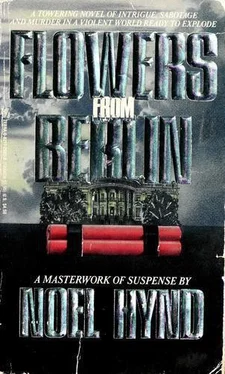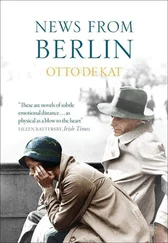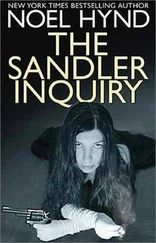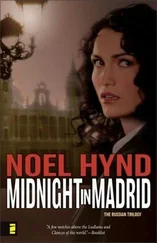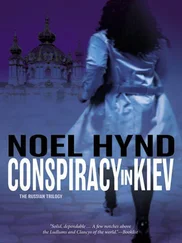Noel Hynd - Flowers From Berlin
Здесь есть возможность читать онлайн «Noel Hynd - Flowers From Berlin» весь текст электронной книги совершенно бесплатно (целиком полную версию без сокращений). В некоторых случаях можно слушать аудио, скачать через торрент в формате fb2 и присутствует краткое содержание. Жанр: Политический детектив, на английском языке. Описание произведения, (предисловие) а так же отзывы посетителей доступны на портале библиотеки ЛибКат.
- Название:Flowers From Berlin
- Автор:
- Жанр:
- Год:неизвестен
- ISBN:нет данных
- Рейтинг книги:3 / 5. Голосов: 1
-
Избранное:Добавить в избранное
- Отзывы:
-
Ваша оценка:
- 60
- 1
- 2
- 3
- 4
- 5
Flowers From Berlin: краткое содержание, описание и аннотация
Предлагаем к чтению аннотацию, описание, краткое содержание или предисловие (зависит от того, что написал сам автор книги «Flowers From Berlin»). Если вы не нашли необходимую информацию о книге — напишите в комментариях, мы постараемся отыскать её.
Flowers From Berlin — читать онлайн бесплатно полную книгу (весь текст) целиком
Ниже представлен текст книги, разбитый по страницам. Система сохранения места последней прочитанной страницы, позволяет с удобством читать онлайн бесплатно книгу «Flowers From Berlin», без необходимости каждый раз заново искать на чём Вы остановились. Поставьте закладку, и сможете в любой момент перейти на страницу, на которой закончили чтение.
Интервал:
Закладка:
Even members of his own party were disgruntled. When would the President announce his own plans? Was he, or was he not, running for a third term? Even Eleanor, who had publicly professed her distaste for another four years in Washington, did not know. "Eight years is enough for any one man," she had said on June 6 in Chicago. On this and most other important matters, the President was keeping his own counsel.
There was no credible successor to carry forward the New Deal. The candidacy of Harry Hopkins was stillborn. John Nance Garner of Texas, the Vice- President and the darling of the increasingly powerful reactionaries within Roosevelt's own party, was already campaigning. So were the six Republicans, equally rock-headed in Roosevelt's opinion.
"Andrew Jackson," Roosevelt was now telling Democratic leaders, "should have picked someone more in sympathy with his policies than Martin Van Buren if he had wanted his policies continued." The history lesson was meant as a warning. But the party leaders were responding with their own warnings: Roosevelt was the only candidate who could hold together the political coalitions in the North and the West in 1940. Roosevelt, they told him, was the only candidate who could prevent the nation from being turned over to the club-swinging isolationists.
"Would your husband consider a third term in order to further his concept of internationalism and the New Deal?" Eleanor was asked in Penn Station by a New York Journal-American reporter in July.
"You'll have to ask him that question," she had answered.
"But hasn't he told you?"
"I haven't even asked him," the First Lady replied, stepping briskly into a private railroad car bound for Washington.
That evening in the capital, the pressures and political harassment evidenced themselves for the first time upon the President himself.
"Mr. Roosevelt? Would you even want a third term?" Walter Lippmann asked during an impromptu press conference.
"I don't know, Walter,” FDR snapped back without a nuance of a smile. "But I'd certainly like a second one."
And so it went.
*
Whatever his political concerns, no one could doubt the President's equal concern with naval matters. And the report that he read on this sultry August morning before lunch was a classified document from the Department of the Navy.
All his life, Franklin Roosevelt had been fascinated by the sea and in love with ships. As Secretary of the Navy during the Great War of 1914-18, he had been so successful at securing materiel that President Wilson had once called him to the White House. There, the thirty-four-year-old Roosevelt had been gently reproached for his ardor.
"Mr. Secretary," Wilson had said in his genteel, measured tones, "it seems you have cornered the market on supplies. I'm sorry, but you will have to divide them up with the Army."
By the time Roosevelt had occupied that same office, he had collected no fewer than 9,879 books and pamphlets on naval matters. A few were housed in the library at Hyde Park. Several hundred were at Warm Springs, Georgia. But most were in the White House. When asked by an interviewer during the first term how many volumes he had actually read, Roosevelt replied, "All but one. But that one arrived last evening."
Roosevelt ran his hand across his brow and reread the U.S. Navy report before him. He was deeply and anguished. The HMS Wolfe, two days out of New York, had been ripped in half by an explosive device placed by a saboteur. The Wolfe had sunk in ninety minutes. Thirty-nine English merchant seamen had lost their lives, four of the five members of the French purchasing commission had gone down with the ship, and the entire cargo had been lost. All this on a voyage that had been shrouded in the strictest secrecy. A special detail of United States Marine guards had been posted at the Erie Boat Basin in Brooklyn where the HMS Wolfe had been docked. But someone had placed an explosive device aboard the ship.
Sabotage on the East Coast, the President concluded as his intercom buzzed, was totally out of hand. The President turned his wheelchair and answered the intercom.
"Mr. Hoover is here," his secretary, Missy LeHand, told him.
"Two minutes," the President answered.
Waiting a few minutes was what J. Edgar Hoover needed these days, Roosevelt mused. The President eased his wheelchair back behind his desk and neatly placed the Navy's report on his right-hand side. He readied himself for the meeting with the F.B.I. director, a meeting to which Hoover had been summoned one hour earlier.
Roosevelt disliked and distrusted Hoover. Hoover was a Republican, a Coolidge appointee dating back to 1924. But even worse, in the eyes of the current President, was Hoover's greedy amalgamation of power within the newly formed F.B.I.. Hoover, it was known, had begun a grand collection of fingerprints and files, accessible primarily to himself. And still worse, Hoover seemed intent on building a political power base out of the recent successes of his agency.
Over the last few years, the F.B.I. had, through a combination of hard work, luck, and occasional diligence, captured several of the most notorious-and inappropriately romanticized-outlaws of the era since the stock market crash. One by one, Ma Barker, Baby Face Nelson, Machine Gun Kelly, Pretty Boy Floyd, and Bonnie and Clyde Parker had fallen into the hands of federal authorities. Always, Hoover was there soon after the arrest to link a hand onto the prisoner's elbow and have his picture taken. Even when the F.B.I. hadn't even been in on the capture, Hoover was there to claim credit. When John Dillinger, for example, had been shot to death outside the Biograph movie theater, a grinning Hoover had been in Chicago the next day to have his picture taken with the cadaver.
To Roosevelt, who knew a thing or two about power bases and who vastly preferred to have his own picture taken among boy scouts or WPA camp workers, such behavior was more than a trifle irritating. He had it in mind, in fact, to replace Hoover in another year. But meanwhile Roosevelt and Hoover were stuck with each other.
There was a knock on the door to the Oval Office and Mrs. LeHand was the first to step through. She ushered Hoover into the President's working quarters, glanced disapprovingly at the F.B.I. director, then closed the door as she left.
"Come in, J. Edgar, come in," the President said, not looking up. Roosevelt sat at a desk that was neither very big nor very neat. Papers were in disarray in every direction and a half-empty can of Camels stood on the left-hand edge. Then Roosevelt glanced up, blinked, cocked his large head, and smiled. J. Edgar Hoover stared at what was-with the possible exception of Adolf Hitler's-the most famous face in the world.
To Hoover, Roosevelt looked like a caricature of himself. The President's face was tanned and mobile, his eyes never at rest. When he smiled, his mouth took the shape of a V, his long jaw tilted upward, and two long grave lines bracketed his mouth. His round glasses reflected like windowpanes in the sunlight.
"Do sit down, please," F.D.R. said. He motioned to a leather armchair.
Hoover mumbled a good morning and sat down. He consciously tried to keep his eyes off Roosevelt's withered legs, visible through the open front portion of the desk. Then Roosevelt adjusted his glasses slightly, as if to bring his visitor into proper focus.
The corners of Hoover's mouth were turned ferociously downward. His neck was crimson, his collar tight, his eyes afire. Shadows from the window behind Roosevelt darkened Hoover's face, but made him squint at the same time.
"It would seem to me, J. Edgar," the President began, "that there exists a certain gathering importance to this matter of German saboteurs and agents within the United States. Yet your Bureau appears unable to make the appropriate arrests."
Читать дальшеИнтервал:
Закладка:
Похожие книги на «Flowers From Berlin»
Представляем Вашему вниманию похожие книги на «Flowers From Berlin» списком для выбора. Мы отобрали схожую по названию и смыслу литературу в надежде предоставить читателям больше вариантов отыскать новые, интересные, ещё непрочитанные произведения.
Обсуждение, отзывы о книге «Flowers From Berlin» и просто собственные мнения читателей. Оставьте ваши комментарии, напишите, что Вы думаете о произведении, его смысле или главных героях. Укажите что конкретно понравилось, а что нет, и почему Вы так считаете.
